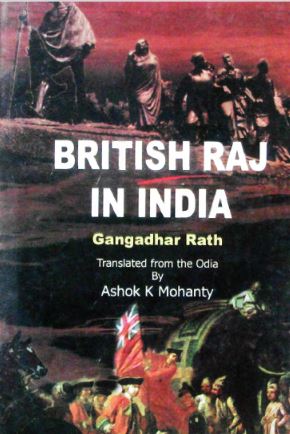The British Raj in India is a significant period in Indian history marked by British colonial rule over the Indian subcontinent from the mid-19th century to the mid-20th century. During this time, the British East India Company gradually expanded its control over various regions of India, eventually leading to the establishment of direct British rule.
One of the key aspects of the British Raj in India is its impact on Indian society, economy, and politics. The forced adoption of British customs and laws, the imposition of heavy taxes, and the exploitation of Indian resources led to widespread poverty and discontent among the Indian population. The British also introduced new technologies, education systems, and administrative structures that had a lasting impact on Indian society.
In his Odia Essay Book “British Raj in India,” Gangadhar Rath provides a detailed account of the British colonial rule in India. Rath delves into the history of the British East India Company and its takeover of Indian territories, as well as the various laws and policies implemented by the British to maintain control over India. He also discusses the resistance movements led by Indian freedom fighters against British rule, such as the Indian Rebellion of 1857.
Ashok Kumar Mohanty, the translator of Rath’s book, brings the Odia text to a wider audience by translating it into English. This translation allows readers who are unfamiliar with the Odia language to access Rath’s valuable insights into the British Raj in India. Mohanty’s efforts in translating the book highlight the importance of making Indian historical texts accessible to a global audience.
The British Raj in India was also marked by the emergence of various Indian nationalist movements seeking to end British colonial rule and establish self-government. The Mogul, Maratha, and Sikh empires all played significant roles in Indian resistance against British rule. The Mogul Empire, once a powerful force in Indian politics, was weakened by British interference and eventually fell under British control. The Maratha Confederacy, a group of regional powers in western India, resisted British expansion for several decades before succumbing to British rule. The Sikh Empire, based in Punjab, also fought against British incursions into their territory before eventually being annexed by the British.
Overall, Gangadhar Rath’s “British Raj in India” is a valuable resource for understanding the complex history of British colonial rule in India. Through his detailed analysis and insights, Rath sheds light on the challenges faced by the Indian population under British rule and the various resistance movements that emerged in response. The English translation of Rath’s work by Ashok Kumar Mohanty ensures that this important historical text reaches a wider audience and contributes to a more nuanced understanding of India’s colonial past.
Books Info
| Books name | British Raj in India |
| Translated | Gangadhar Rath; Ashok Kumar Mohanty, |
| No Of pages | 279 |
| Publisher | Lark Books |
| Publication | 2010 |
| Printed At | Dibya Mudrani |
| Distributor | NA |

